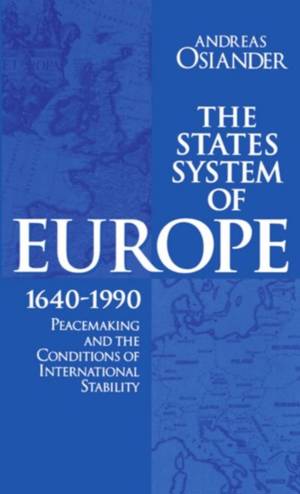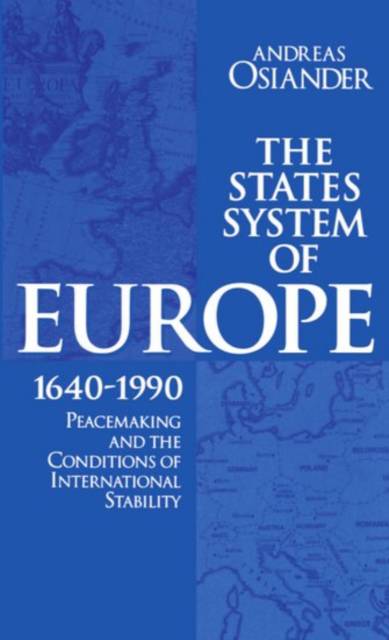
- Afhalen na 1 uur in een winkel met voorraad
- Gratis thuislevering in België vanaf € 30
- Ruim aanbod met 7 miljoen producten
- Afhalen na 1 uur in een winkel met voorraad
- Gratis thuislevering in België vanaf € 30
- Ruim aanbod met 7 miljoen producten
Zoeken
The States System of Europe, 1640-1990
Peacemaking and the Conditions of International Stability
Andreas Osiander
Hardcover | Engels
€ 426,95
+ 853 punten
Omschrijving
This work provides a novel analysis of the evolution of the states system of Europe since the mid-seventeenth century. The author looks at the four major European congresses: Münster and Osnabrück, Utrecht, Vienna, and Paris, and shows how a prevailing consensus on certain structural concepts, such as the balance of power or national self-determination, has influenced the evolution of the system and determined its stability (or imbalance). The author argues that the structure of the international system is neither a given quantity nor determined primarily by conflict between international actors, but is essentially the result of a general agreement expressed in "consensus principles." His approach provides a more plausible analysis of international relations and the causes of conflict than traditional theories, and the study concludes with an interpretation of the period since 1920. The work will be of great interest to scholars and students of international relations, European history, and European politics.
Specificaties
Betrokkenen
- Auteur(s):
- Uitgeverij:
Inhoud
- Aantal bladzijden:
- 368
- Taal:
- Engels
Eigenschappen
- Productcode (EAN):
- 9780198278870
- Verschijningsdatum:
- 8/09/1994
- Uitvoering:
- Hardcover
- Formaat:
- Genaaid
- Afmetingen:
- 140 mm x 216 mm
- Gewicht:
- 621 g

Alleen bij Standaard Boekhandel
+ 853 punten op je klantenkaart van Standaard Boekhandel
Beoordelingen
We publiceren alleen reviews die voldoen aan de voorwaarden voor reviews. Bekijk onze voorwaarden voor reviews.







